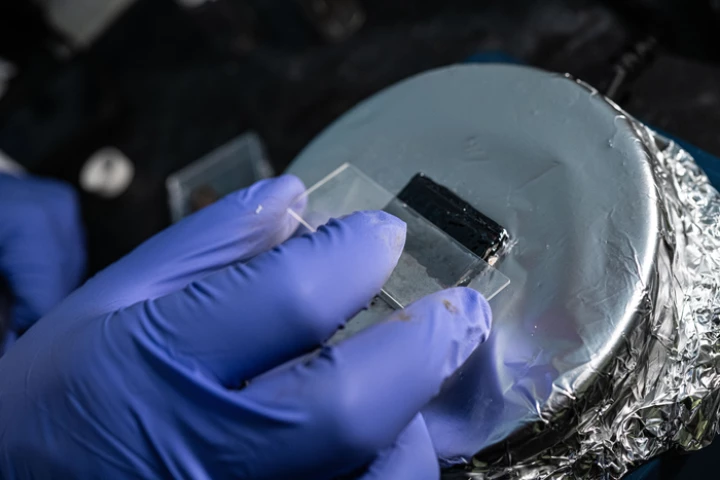Rust
-
Estrogen can harm aquatic plants and animals when passed into waterways via human and agricultural waste streams. Researchers have now developed a new way of removing the hormone from water, however, using what's known as "smart rust."
-
For some time now, a nanomaterial known as MXene has been touted as a faster-charging alternative to the lithium used in batteries. It could soon be an even more viable choice, as scientists have devised a method of making it last much longer.
-
Scientists at Rice University have cooked up a new alloy with a unique and diverse set of attributes that could prove highly effective at protecting steel from corrosion, and can even heal itself when damaged.
-
It’s not unusual to find rust around salt water, but now the pairing might be more useful. Researchers have found that electricity can be produced when salt water flows over the top of thin films of rust. The process was previously seen in – what else – graphene, but rust is far easier to scale up.
-
When liquids stick to steel for long enough, the steel corrodes. Fortunately, Harvard scientists have recently discovered that their existing SLIPS technology not only causes liquids to roll right off, but it actually makes steel stronger.
-
When it comes to robots that perform internal inspections of water pipes, virtually all of them move along on rubber tires or treads. The European Union TRACT project is instead developing a propeller-driven inspection robot, that keeps the pipe-touching to a minimum.
-
Although all steel-bodied cars rust eventually, premature rusting may soon be less of a problem. A new system non-destructively analyzes automobiles' paint jobs, making sure that the layers of paint have been applied properly.
-
According to the US Department of Defense, corrosion costs the Navy approximately US$7 billion every year. Now, researchers from the Office of Naval Research and Johns Hopkins University are looking into the use a powder that could allow scratched or chipped paint to "heal like human skin."
-
Scientists at EPFL have invented a new device which harnesses hydrogen from sunlight, water and rust, to provide an economic method of storing renewable energy.
-
Scientists have used graphene to create an anti-rust coating for steel.
-
Researchers have discovered a new form of micro-organism munching away at the hull of the RMS Titanic, and named it Halomonas titanicae.
-
Ultimate VCI Protection bags are plastic bags which are said to keep steel tools stored in them from rusting.
Load More











